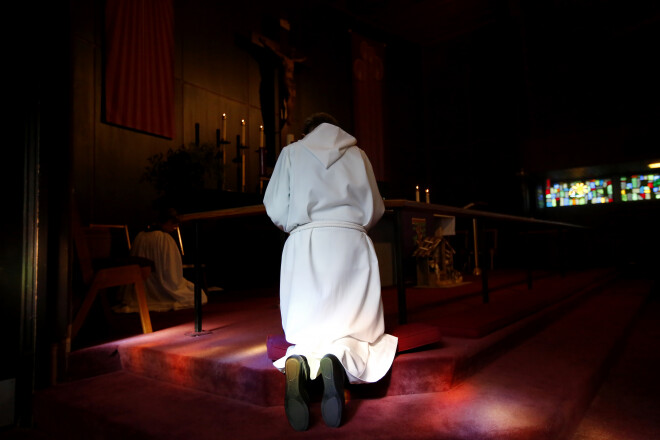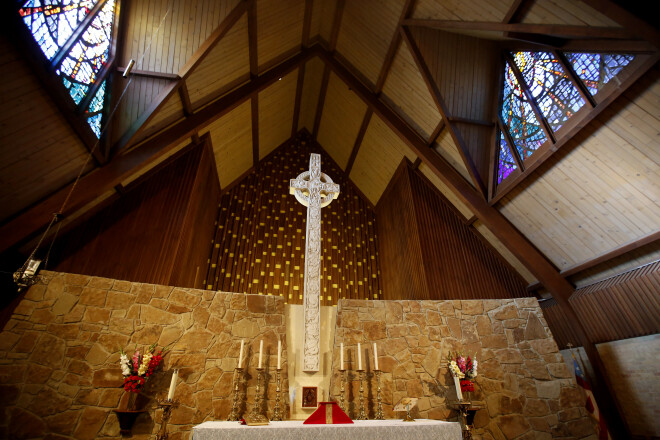Priest and Victim

Understanding Jesus the Messiah involves understanding both who He is and what He has done; the two are intertwined. Understanding the latter requires us to think about a central Biblical theme: sacrifice. The Gospels tell us His death coincided with Passover. Hebrews says He is the one, eternal priest; on the throne in Revelation is the wounded lamb. Now sacrifice was of course not exclusive to the Jewish people. It has been practiced the world over, and through its reasons are many and complicated, they include opening access to the lifeblood, and making a substitution symbolically of offerer for victim. While it is more rare in the modern world, it still lies deep in our collective psyche.
The death of Jesus and His resurrection should be thought of as a single event, His identification with our whole predicament and its vindication. The early Church accordingly spoke of its yearly remembrance and celebration as a single event, the Triduum, the three-days. At the most basic level we can say that our salvation happened, and so cannot be undone any more than any other event can be undone.
Let’s use the two senses of sacrifice: access and substitution. These apply well to the saving death and resurrection of Jesus. He ‘broke down the dividing wall’ (Ephesians 2:14), He gave us access to the Father (Romans 5:2): both involve an overcoming, a victory (here see Gustav Aulen’s famous book ‘Christus Victor’). He did so by taking on himself our wrongful condition - this is why every theory of atonement, though they feature different metaphors (from the law court, the pawn shop, etc.) has a dimension of ‘trading places.’ Both are God's costly work here on our behalf.
Sing ‘At the Lamb’s High Feast...’ and discuss the atonement.



